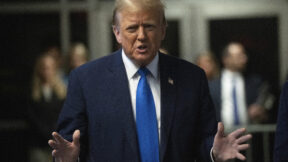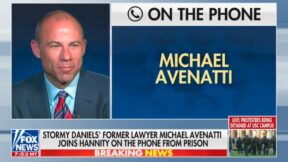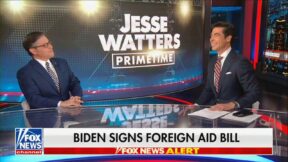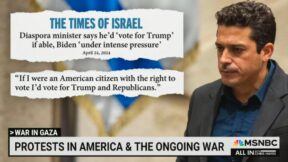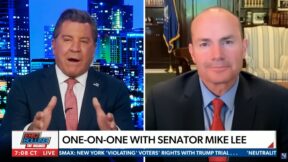The Food Sovereignty Legacy: How Hugo Chavez’ Programs Can Inform US Efforts To Fight Hunger
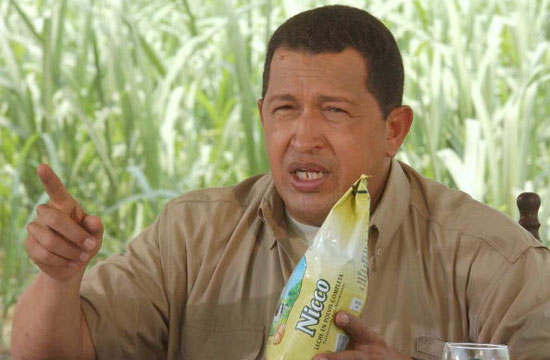 With the death of Venezuelan president Hugo Chavez comes the inevitable chatter about his legacy: Who will take over in light of the power vacuum left behind by the charismatic leader? But given that we cover many chefs and restaurateurs who advocate for the same goals as Chavez — we have a very different question: what should we take away from his attempts to turn Venezuela’s food system into one that was local, sustainable, and affordable? (Any follower of food media should instantly recognize those three buzzwords.)
With the death of Venezuelan president Hugo Chavez comes the inevitable chatter about his legacy: Who will take over in light of the power vacuum left behind by the charismatic leader? But given that we cover many chefs and restaurateurs who advocate for the same goals as Chavez — we have a very different question: what should we take away from his attempts to turn Venezuela’s food system into one that was local, sustainable, and affordable? (Any follower of food media should instantly recognize those three buzzwords.)
And why is it that, despite these promises and policies, a nation that should be flush with oil cash imports nearly 70% of its food and is currently facing massive food shortages, inflated prices, and decreased agricultural production?
Upon electing Chavez in 1998, Venezuela had one of the highest levels of nutrition inequality in the world. “Food sovereignty,” part of an international movement demanding that states both recognize the human right to food and become self-sufficient producers to address that need, became a key part of Chavez’ domestic platform and, indeed, central to his populist appeal.
Many of his policies might sound familiar to sustainable farming advocates in the United States: shifting agricultural production from industrial-scale farming corporations to smaller businesses operated by local farmers, lowering prices on food, and sponsoring government-run markets. However, under Chavez’s control, many of these policies saw disastrous results — and increased the amount spent on food imports tenfold since the beginning of his administration. Now the world gets something of a Mulligan, a chance to try some of these again. In the interest of memorializing the polarizing leader, and something of a ‘don’t try this at home’ to the rest of us, let’s examine how Chavez executed these policies, one by one:
Farming
The Chavez land redistribution policy is Alice Waters’s dream come true: in 2009, the Bolivarian government announced that they would forcibly dismantle all large haciendas, or industrial farms, break them up, and parcel them out to peasants wishing to farm. (Small farmers, hooray?) Not only did the amount of land used for agriculture increase (imagine if all of New Jersey were farmland), so did the production of fruits and vegetables…but at the expense of staples, like beef, rice, sugarcane, and milk, the production of which has fallen dramatically.
Moreover, as the Washington Post extensively reports, the farmers who took over the large farms lacked the government support to thrive:
César Alviares, 50, who also supports Chávez, said he is barely getting by raising a few cows and chickens. The crops he tried to grow all failed, he said, because he never received credit or technical help to control flooding. “I put in two hectares of yucca plants — the water came and finished them off,” he said. “I put in a hectare of bananas — the water came and finished them off. The corn, all of it. So in the end, I just have pasture.”
Nor, apparently, does the government know much about agriculture:
Already, the state’s land agency has taken a portion of the 2,300-acre farm, uprooting cane and preparing the soil for corn. “This isn’t land for corn,” [Farm owner] Victor Lecuna said, sounding exasperated. “In this region, corn has never been planted.”
Even the hundreds of government-financed urban farms are unpopular. Critics claim that the money plowed into organic urban farming is doing little to address the fact that ever since the reappropriation, farmable land has dropped by 7.8% and overall agricultural production is down by 0.6%, according to Al-Jazeera.
Making Food Affordable
Chavez saw our nation’s government food subsidies and raised us some artificially capped food prices, preventing prices from rising in response to market demands. However, the price caps themselves — extending beyond twelve everyday staples in 2009 to some 15,000 items in 2011 — wreaked havoc on food suppliers and distributors, as the government started monitoring them, and occasionally seizing control. As the Economist reports:
Empresas Polar, a family-owned giant that is Venezuela’s biggest private food-and-drink company [and] claims to generate almost 3% of the country’s non-oil GDP and has 19,000 employees, complains of harassment. It says its plants and offices were visited 220 times by government inspectors in the first five months of this year. In late May, the government confiscated 114 tonnes of food from a Polar warehouse, alleging hoarding (which the company denies).
Even without the alleged harassment, the artificial controls on price still led to a 27.6% inflation rate last year — one of the highest in the world — and massive food shortages. Last year, the New York Times reported on how the very policies meant to help working-class Venezuelans had, in fact, begun to harm them:
Some residents arrange their calendars around the once-a-week deliveries made to government-subsidized stores like this one, lining up before dawn to buy a single frozen chicken before the stock runs out. Or a couple of bags of flour. Or a bottle of cooking oil…
Asked where a shopper could get milk on a day when that, too, was out of stock, a manager said with sarcasm, “At Chávez’s house.”
One odd side effect: the fact that flour, oil and meat is subsidized has led to growing obesity rates. “Prices of fruits and vegetables are free to rise and are out of the reach of many,” Carlos Machado, an agriculture professor at the Caracas-based IESA graduate school, told USA Today. “So people stock up on sugars and carbohydrates, whose prices are frozen.” Gee, that problem epidemic sounds familiar.
Government-subsidized markets
It’s not hard to cap prices on food at all when you’re Hugo Chavez, but it gets even easier once you’ve created your very own state-run supermarkets to feed people after all the food corporations go on strike to protest your anti-business policies. For instance, Mercal, which was started in response to these riots, has over 16,600 outlets selling groceries at an up to 40% discount, and became very popular among the working class. But thanks to a consumer protection law, Chavez retained the power to expropriate any company if he felt it necessary for national interest — and he did so often, in the hopes of creating “socialist megastores”, selling food and other items with no markup.
A viable model for the US?
For better or for worse, Chavez was one of the first visible world leaders to address food inequality on a large scale and his goal of ensuring that the least fortunate members of society have access to affordable, healthy food was, really, a noble one. To a certain extent, the US already implemented some of his policies, and to similar results: for instance, much like Venezuela, we have price controls on our grains, cooking oil, and beef, to the point that they’re some of our cheapest calorie sources (and, like Venezuela, have led to obesity). Perhaps the legacy he’ll leave behind is that good intent isn’t enough when lives hang in the balance–and that equality cannot exist in any form, if the entire system is broken.
Have a tip we should know? tips@mediaite.com
